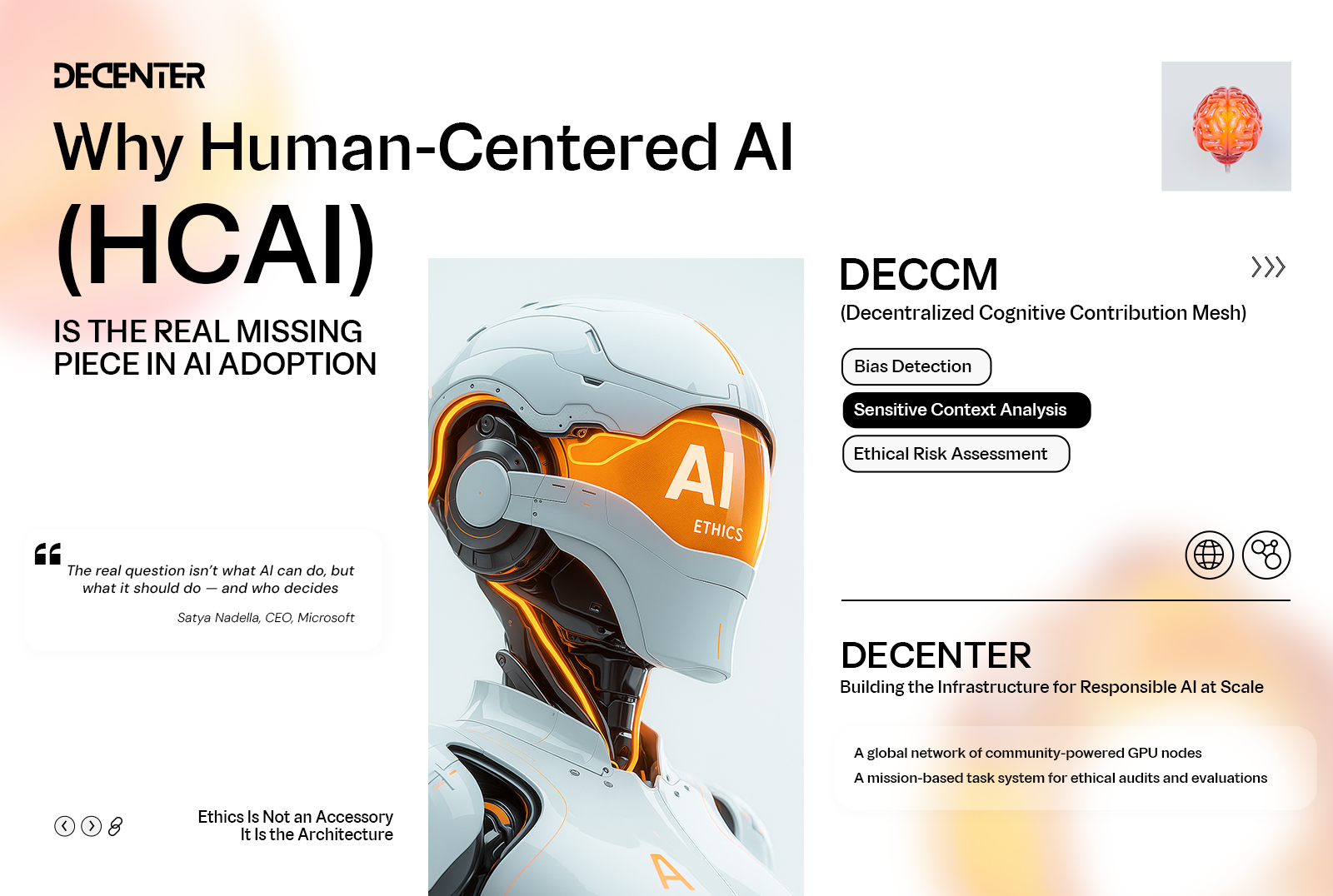Why Human-Centered AI Is the Real Missing Piece in AI Adoption
The 2025 AI Index Report by Stanford’s Institute for Human-Centered Artificial Intelligence (HAI) emphasizes a stark reality: AI is outpacing our governance structures as its technical influence deepens across society, economy, and global policy. Modern AI models are no longer passive learners — they act, decide, and generate, increasingly shaping social norms, economic trends, and public discourse.
AI is no longer an emerging technology. It is a deployed force. Yet while its capabilities accelerate, our ethical safeguards lag behind.
Beneath the surface of technical brilliance, a structural vulnerability is emerging: intelligence without fairness.
The Silent Risk: When Intelligence Exceeds Ethics
In the United States, a diagnostic AI system was found to underestimate disease severity in Black patients, reflecting deeply embedded biases in training data. In education, automated grading tools have favored formulaic writing styles, undermining creativity and cultural nuance. In multiple countries, AI-driven welfare systems have misclassified vulnerable populations, leading to unjust denials of public support.
Despite technical sophistication, AI systems often lack fairness. According to Reuters, U.S. officials evaluating Chinese models like Alibaba’s Qwen 3 and DeepSeek R1 found pervasive ideological bias aligned with government narratives. A June 2025 study of LLM-powered recruitment tools (e.g., GPT‑4o, Claude 4, Gemini 2.5) found 12 % differences in interview rates favoring certain demographics—revealing persistent bias despite safeguards. An Australian research in May 2025 reported voice-interview AIs exhibit error rates up to 22 % against non-native speakers, warning of legal and ethical consequences.
Human-Centered AI: Accountability Cannot Be Automated
“AI should serve humans — not replace or control them. We need ethical frameworks that are transparent, verifiable, and grounded in human values.”
— Francesca Rossi, Global Leader for AI Ethics, IBM Research
“The real question isn’t what AI can do, but what it should do — and who decides.”
— Satya Nadella, CEO, Microsoft
Many technology leaders are making strides. Microsoft has introduced its Responsible AI Standard, integrating ethical risk assessments across the product lifecycle. Google is investing heavily in research on fairness and bias mitigation within LLMs.
But individual corporate efforts, however sincere, are insufficient at systemic scale. What we need is a community-driven, transparent, and scalable mechanism for AI auditing — one not dependent on any single institution or platform.
DeCCM: A Decentralized, Human-Centered Model for Ethical AI Validation
That’s where DeCCM (Decentralized Cognitive Contribution Mesh) comes in — a novel architecture for community-led AI auditing. DeCCM enables diverse stakeholders worldwide to directly participate in the ethical evaluation of AI systems, anchored in three core dimensions:
Bias Detection: Identifying patterns of systemic bias across race, gender, geography, and socioeconomic status
Sensitive Context Analysis: Detecting harmful, misleading, or inflammatory content
Ethical Risk Assessment: Flagging behaviors that may violate cultural, societal, or legal norms
Built on decentralized infrastructure, DeCCM connects thousands of validators — including AI engineers, ethicists, educators, and public advocates — into a distributed mesh of peer review. Crucially, this is not theoretical. DeCCM is already being implemented in live, high-stakes environments.
From Research to Real-World Impact: DeCCM in Critical Sectors
DeCCM has been deployed in AI systems supporting education, healthcare, renewable energy, and public governance. In these domains, it not only optimizes technical performance but ensures accountable and fair evaluation processes, grounded in collective intelligence.
Unlike conventional oversight models led by internal review boards, DeCCM enables transparent, verifiable, and interdisciplinary audit processes that adapt to context and scale with deployment.
DeCenter: Building the Infrastructure for Responsible AI at Scale
The DeCCM protocol is powered by DeCenter — a decentralized AI infrastructure platform designed to support scalable, responsible AI validation. DeCenter integrates:
A global network of community-powered GPU nodes
A mission-based task system for ethical audits and evaluations
Each audit is stored, cross-validated, and subject to multiple layers of review, ensuring objectivity, transparency, and auditability at every step. This architecture fuses technological rigor with human-centric governance to lay the groundwork for a truly ethical AI ecosystem.
Ethics Is Not an Accessory — It Is the Architecture
AI is now embedded in nearly every sector — from finance to education, healthcare to government. But scaling AI isn’t just about faster models or better algorithms. It’s about responsible foundations.
The future of AI will not be defined by performance alone — but by fairness, transparency, and trust.
And that future cannot be built without humans at the center.
Follow us: [LINK]

